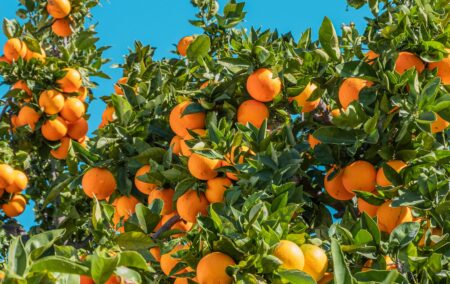In 2022, South African citrus growers found themselves caught in a diplomatic ambush. The European Union (EU) quietly introduced new cold treatment protocols for citrus imports, citing phytosanitary concerns over false codling moth.
This decision, which came mid-season, jeopardised nearly R10 billion worth of exports. Justin Chadwick, the outgoing CEO of the Citrus Growers’ Association, called it what it was: disguised protectionism.
It was also a warning that South Africa’s agricultural policymakers have yet to truly grasp.
The EU’s regulatory power stretches far beyond its borders. Through a phenomenon known as the “Brussels Effect”, it exports its rules to the rest of the world via market access rather than coercion.
In agriculture, this influence is expanding rapidly under the banner of “sustainability”. From maximum pesticide residue levels to carbon border adjustments and traceability standards, the new game is regulatory compliance or exclusion.
South Africa, which is heavily reliant on agri-exports, is perilously exposed.
The EU remains a key market for local wine, citrus, and table grapes. But new rules are increasingly difficult to meet, especially for smaller players.
The 2022 citrus dispute may have been a flashpoint, but it was not an anomaly. The EU has also moved towards the broader implementation of its Farm to Fork Strategy, which pushes exporters to comply with sustainability metrics even when those metrics impose unrealistic burdens on developing countries.
For big agribusinesses, adaptation, though costly, is achievable. They have the scale and capital to invest in compliance, acquire certifications, and reshape logistics. However, for emerging farmers and smallholders, the story is different. The infrastructure needed to meet the EU’s evolving standards is simply out of reach for most. The risk is that the more the EU raises the bar, the more the benefits of trade are concentrated in the hands of those already on top.
What masquerades as sustainability starts to deepen inequality.
This is no abstract threat.
Squeezed out
In 2023, agricultural economist Wandile Sihlobo warned that unless the country rapidly improved its compliance infrastructure, small-scale farmers would be squeezed out of global markets.
The government, meanwhile, has largely remained reactive. While it did initiate World Trade Organisation (WTO) consultations in 2024 over the EU’s citrus measures and later escalated the matter by requesting formal dispute panels, it continues to behave as if each episode is an isolated disruption rather than the symptom of a deeper shift. There is little indication that trade diplomacy is being guided by a forward-looking, institutional strategy for engaging with the EU’s regulatory agenda.
It doesn’t have to be this way.
The country can and must pursue strategic compliance. That means investing in the certification infrastructure that emerging farmers need. It means pushing for exemptions or adjusted timelines in EU trade negotiations under the Southern African Development Community (SADC)-EU Economic Partnership Agreement.
And it means calling out hypocrisy where necessary. Sustainability cannot be used as a fig leaf for protectionism.
The EU’s agricultural regulations are designed with its own geopolitical priorities and economic circumstances in mind, and not those of developing countries. Therefore, alignment should be thoughtful and deliberate, and not simply automatic. A more assertive approach, which is informed and intentional – insisting on a pro-free trade, liberalised paradigm – will send a clear signal that while trade partnerships are valued, they cannot come at the cost of economic growth, freedom, and prosperity.
Balance openness with autonomy
The coming years will test South Africa’s ability to balance openness with autonomy. Nowhere is this tension more acute than in agriculture, where access to export markets is vital, but so is the inclusion of emerging farmers who are still on the margins. Rules made in distant jurisdictions can undercut this goal just as powerfully as any domestic policy failure.
Europe will continue to legislate in line with its objectives. That is its prerogative. However, it is South Africa’s responsibility to respond in a way that asserts its interests and protects vulnerable producers without sacrificing development on the altar of regulatory deference.
[Image: Philippe Gauthier on Unsplash]
The views of the writer are not necessarily the views of the Daily Friend or the IRR.
If you like what you have just read, support the Daily Friend

